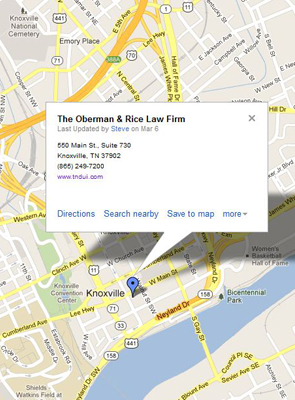Chemical Tests Summary
Many people who submit to a chemical test (blood, breath or urine) and register above the legal limit (.08% blood alcohol for DUI and .02% blood alcohol for Underage DWI), often believe that their case cannot be successfully defended and choose not to retain a lawyer. However, an investigation of the case by a Tennessee DUI attorney often reveals evidence that calls into doubt the reliability of the chemical test and may even result in keeping the test results from being introduced in court.
The Tennessee DUI lawyer you hire should be familiar with the many factors which can affect the result of a chemical test (blood test, breath test or urine test). Such factors often lead to an incorrectly high blood alcohol concentration. Depending on the type of specimen and analysis, the following are some of the factors that should be investigated to ensure the reported chemical test was accurate:
• Radio Frequency Interference (which may be caused, for example, by a police radio, a microwave, or a cellular telephone)
• Mouth Alcohol During Collection of a Breath Sample
• Foreign Substances in the Mouth (for example, tongue stud or dentures)
• Gastroesophageal Reflux Disease (GERD)
• Observation of the Subject Prior to Administration of the Test (State v. Korsakov is a Tennessee DUI case that discusses this issue)
• Diabetes
• Method of Blood Extraction
• Blood or Urine Sample Storage
• Preservation of the Blood or Urine Sample
• Transportation of the Blood or Urine Sample
• Blood, Breath or Urine Sample Analysis
• Proper Elimination of the Breath or Urine Sample from the Body
While this subject matter is too lengthy to properly discuss on a web page, our lawyers have written and lectured extensively on this topic. See, for instance, Mr. Oberman's legal texts - Drunk Driving Defense and DUI: The Crimes & Consequences in Tennessee.
DUI Information
Click on the links below for information about the Tennessee offense of DUI.









 Site Optimized by:
Site Optimized by: